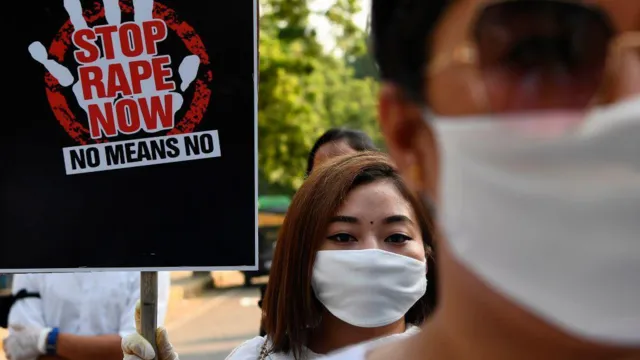A recent court ruling in India, which declared that a husband’s forced “unnatural sex” with his wife is not a crime, has sparked widespread outrage and reignited demands for stronger protections for married women. The controversial decision has also brought the issue of marital rape back into focus in a country that has consistently refused to criminalize it.
Earlier this week, a high court judge in Chhattisgarh acquitted a 40-year-old man who had been convicted in 2019 of raping his wife and committing “unnatural sex,” which allegedly led to her death hours after the assault.
The trial court had also found him guilty of “culpable homicide not amounting to murder” and sentenced him to 10 years of rigorous imprisonment. However, Justice Narendra Kumar Vyas overturned the conviction, citing India’s lack of laws against marital rape as the basis for his decision.
The ruling has been met with fierce criticism from activists, lawyers, and advocates for women’s rights. Sukriti Chauhan, a lawyer and gender rights activist, called the judgment “ethically and morally abhorrent,” stating that it represents a dark moment for India’s legal system. Priyanka Shukla, another lawyer, emphasized that such rulings send a dangerous message that husbands have unchecked rights over their wives, even in cases of extreme violence.
The case details are harrowing. According to the prosecution, the husband, a driver, forced his wife into non-consensual “unnatural sex” on December 11, 2017, causing her severe pain. She sought help from relatives and was rushed to the hospital, where she died hours later. In her dying declaration, she attributed her condition to her husband’s actions.
The trial court had relied on this statement and a post-mortem report, which confirmed fatal injuries to her abdomen and rectum, to convict the man. However, Justice Vyas dismissed the dying declaration’s validity and emphasized that marital rape is not recognized as a crime in India.
The ruling has intensified calls for legal reforms to address marital rape and protect women from domestic violence, which remains a pervasive issue in the country.

